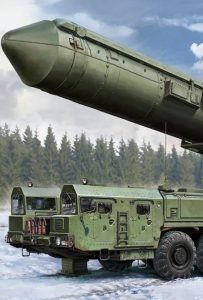
France discusses development of a 1000 km ballistic missile
The French military is discussing the development of its own intermediate-range ballistic missile in view of its effectiveness in the Russo-Ukrainian war.
French publication Challenges reported on this.
According to journalists, France is studying the development of a French project for an army tactical missile system with a range of over 1000 km.
“The conflict in Ukraine, as well as Iran’s recent attacks on Israel, remind us that the long-range strike capabilities of land-based ballistic missiles are a strategic weapon for our competitors,” Cher deputy François Cormier-Bouligon, rapporteur of the National Assembly’s defense committee, wrote.
The publication noted that the idea of creating its own ballistic missile is currently under discussion between the French Armed Forces Command and the Directorate General of Armaments.
It is expected to be a land-based missile with a range of 1000 kilometers or more. At the terminal stage of the flight, the missile will be able to actively maneuver toward the target. In addition, it will be equipped to overcome enemy air defense.
French ballistic missiles
The project is apparently currently at the stage of defining requirements for future development, so many details remain unknown or undeveloped.
Today, France is one of the few countries in Europe with ballistic missile development competencies. The country independently produces M51 strategic submarine-launched ballistic missiles, which are designed to be launched from submarines and deliver nuclear warheads at a distance of up to 10,000 kilometers.
During the Cold War, France was also the only country to possess indigenously produced tactical ballistic missiles called Pluton.

The European defense giant MBDA, as well as the French aerospace consortium ArianeGroup of Airbus and Safran, which develops the aforementioned M51 missiles and Ariane series orbital launch vehicles, may be likely contenders for the order to develop a new missile system.
Considering the latter’s competencies and trends in the development of tactical systems, the new missile may have a solid-fuel rocket engine and dimensions not exceeding those of the conventional Russian 9M723 Iskander-M missile.

The means of bypassing enemy air defense systems for the advanced missile may mean an onboard system similar to Russian systems for firing decoy containers. However, the Russians themselves have abandoned them in favor of installing satellite navigation antennas based on their war experience.
Obviously, such weapons, in addition to conventional warheads, can also become a means of delivering tactical nuclear warheads, which would be an order of magnitude more difficult to intercept than in the case of cruise missiles.
SUPPORT MILITARNYI
Even a single donation or a $1 subscription will help us contnue working and developing. Fund independent military media and have access to credible information.


 Urich
Urich 
 Андрій Харук
Андрій Харук 
 Контужений Безпілотник
Контужений Безпілотник 

 Центр ініціатив ПЖ
Центр ініціатив ПЖ 



 Vadim Kushnikov
Vadim Kushnikov 
 Андрій Тарасенко
Андрій Тарасенко 
 Юрій Юзич
Юрій Юзич 
 Віктор Шолудько
Віктор Шолудько 
 Роман Приходько
Роман Приходько 




